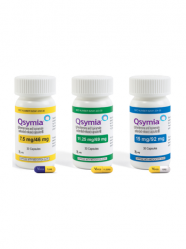Orexigen’s Cardiovascular Outcomes Trial for Contrave, the Light Study, Is Enrolling Faster Than Expected

They say that bad things come in threes. This certainly held true for up-and-coming obesity medications in late 2010 and early 2011, when Arena’s Belviq (formerly called Lorqess), Vivus’ Qsymia (formerly called Qnexa), and Orexigen’s Contrave were all denied FDA approval due to unresolved safety concerns. What people fail to mention is that there is often a silver lining – recently, Belviq and Qsymia gained FDA approval, and Orexigen announced that Contrave is progressing faster than expected on its path to resubmission.
In Contrave’s case, the FDA denied approval of the drug in early 2011 due to the slight increases in heart rate and blood pressure observed with Contrave treatment in clinical trials (see new now next in diaTribe #30). Concerned with the drug’s cardiovascular safety, the FDA requested Orexigen to conduct an “outcomes trial” that would track cardiovascular “events” (e.g., stroke, heart attack, death attributable to cardiovascular causes). However, the agency’s initial request was too burdensome (in terms of trial size and duration), so Orexigen decided to halt the development of Contrave (see new now next in diaTribe #34). Following a series of interactions between Orexigen and the FDA, the agency clarified a feasible path forward to approval, easing the criteria for the outcomes study and allowing Orexigen to use interim results from the trial as the basis for approval (see new now next in diaTribe #36).
The cardiovascular outcomes trial for Contrave, dubbed the Light Study, began enrolling participants in early June 2012. Orexigen recently announced that enrollment for the trial is going faster than expected (over 1,500 participants enrolled in the first five-and-a-half weeks alone!). With speedy enrollment, there is the possibility (but not a guarantee) that Orexigen will be able to resubmit Contrave to the FDA for review sooner than originally anticipated (early 2014). This is because the outcomes trial is “event-driven,” meaning that participants in the trial have to experience a pre-specified number of events before the interim analysis (and resubmission) can take place. If Contrave is shown to be safe in terms of its cardiovascular risk, hopefully it won’t be too long before the drug joins Belviq and Qsymia on the market – the more safe and effective options for obesity, the better, since not all individuals will respond to any given therapy. –TT/VW







